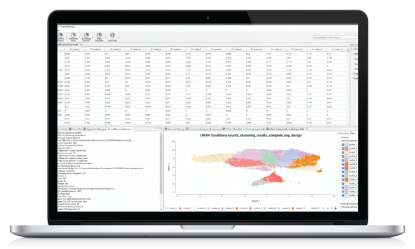BioBam Supported Project – with OmicsBox.
Researchers:
- Richard Lathe – Division of Infection Medicine, University of Edinburgh Medical School, Edinburgh, UK
Project:
In managing the COVID-19 pandemic there is an urgent need to understand why some people develop severe infection leading to hospitalization and mortality, whereas others are relatively unaffected.
Hubei region of China reports 4.5% mortality, whereas Jiangsu region (with a similar population) reports 0% mortality (WHO Coronavirus Disease 2019 Situation Report 50; March 10, 2020). Similar variations are seen in Europe: Italy reports 5% mortality whereas Germany reports 0.18% (idem). Regional differences within a single country such as China are unlikely to be explained by confounds such as genetic background, underreporting, and differences in medical regimens. We conclude that different regions differ in infection susceptibility, and surmise that preexposure to related viruses may offer partial protection. The global human population is widely seropositive (>90%) for coronaviruses 229E, OC43, HKU1, NL63, in addition to population relicts of SARS and MERS infection, and mutation/recombination rates in coronaviruses are high relative to other viruses, adding further diversity. We therefore aim to use coronavirus probes to explore databases of human primary sequencing data (blood, feces, lung, brain) to investigate other potential (hidden) coronaviruses circulating in the population. As a reference point we will employ poxvirus probes where sequences related to variola major were recently reported in brain. Potentially, the identification of new coronaviruses could permit patient typing for susceptibility versus resistance to COVID-19 infection and prioritization for treatment.
This project is now supported with free access to all OmicsBox resources, including all modules and unlimited cloud computation.



